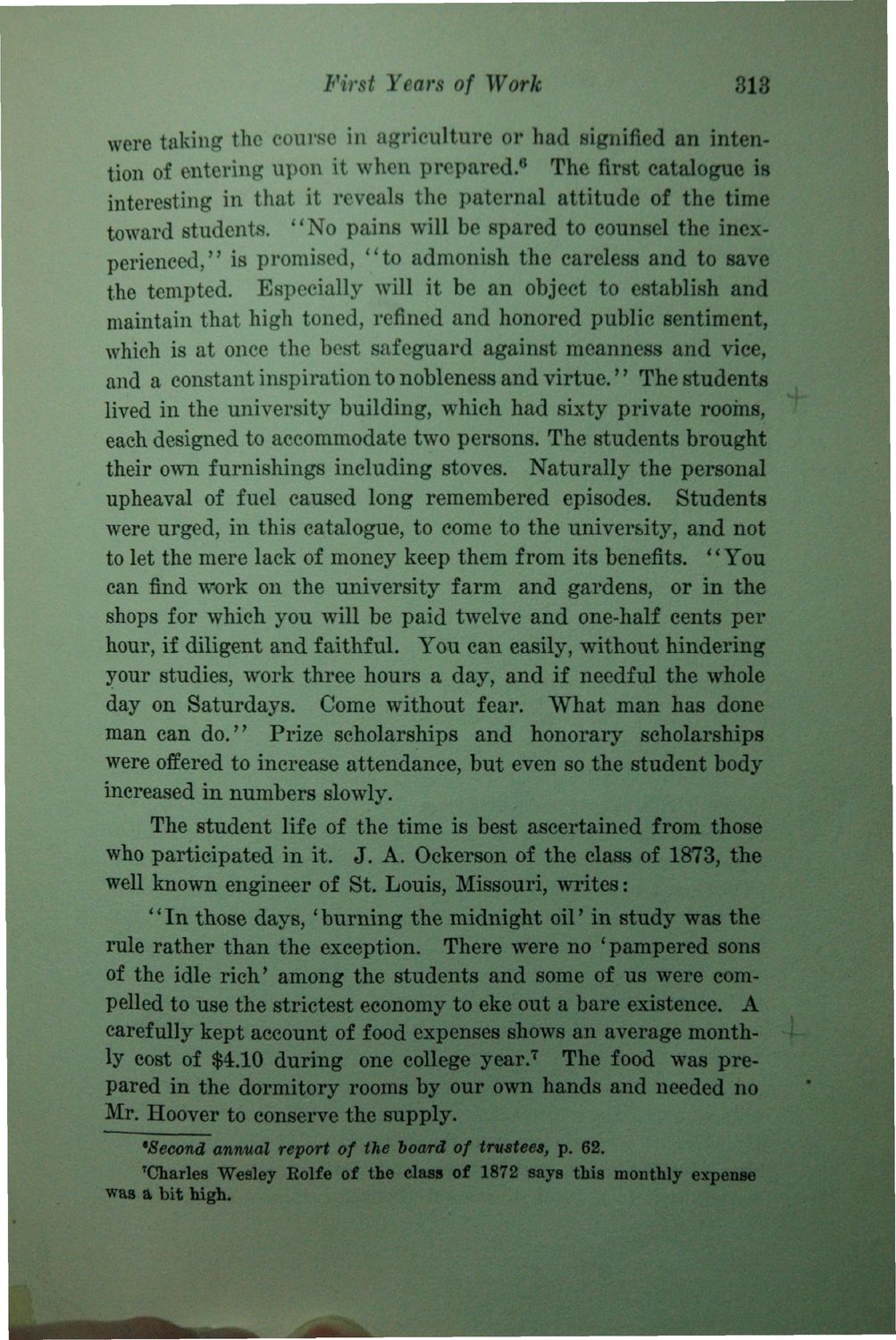| |
| |
Caption: Book - History of the University (Powell)
This is a reduced-resolution page image for fast online browsing.

EXTRACTED TEXT FROM PAGE:
First Years of Work 313 were taking the course in agriculture or had signified an intention of entering upon it when prepared.* The first catalogue is interesting in that it reveals the paternal attitude of the time toward students. "No pains will be spared to counsel the inexperienced/ ' is promised, "to admonish the careless and to save the tempted. Especially will it be an object to establish and maintain that high toned, refined and honored public sentiment, which is at once the best safeguard against meanness and vice, and a constant inspiration to nobleness and virtue.I f. The students lived in the university building, which had sixty private rooms, each designed to accommodate two persons. The students brought their own furnishings including stoves. Naturally the personal upheaval of fuel caused long remembered episodes. Students were urged, in this catalogue, to come to the university, and not to let the mere lack of money keep them from its benefits. "You can find work on the university farm and gardens, or in the shops for which you will be paid twelve and one-half cents per hour, if diligent and faithful. You can easily, without hindering your studies, work three hours a day, and if needful the whole day on Saturdays. Come without fear. What man has done man can do." Prize scholarships and honorary scholarships were offered to increase attendance, but even so the student body increased in numbers slowly. The student life of the time is best ascertained from those who participated in it. J. A. Ockerson of the class of 1873, the well known engineer of St. Louis, Missouri, writes: ' 'In those days, 'burning the midnight oil* in study was the rule rather than the exception. There were no 'pampered sons of the idle rich* among the students and some of us were compelled to use the strictest economy to eke out a bare existence. A carefully kept account of food expenses shows an average monthly cost of $4.10 during one college year.7 The food was prepared in the dormitory rooms by our own hands and needed no Mr. Hoover to conserve the supply. *Second annual report of the board of trustee*, p. 62. 'Charles Wesley Rolfe of the class of 1872 aays this monthly expense was a bit high. •ft^&Zttfci
| |